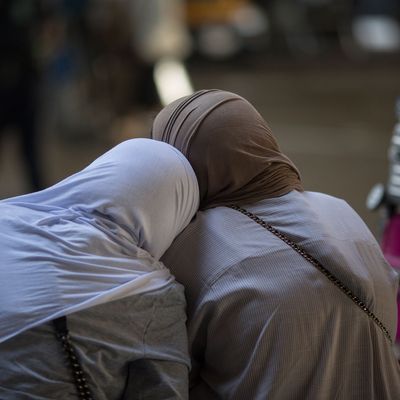
After considerable advance speculation, the president has issued a new travel restriction order to replace most of the highly controversial and much-litigated temporary order issued in January and revised in March. It covers more countries (eight), including two that are not majority Muslim, and while its provisions vary by country, the travel restrictions are in most cases stricter. The new order does not cover refugees, though a separate order involving them is likely imminent. And the timing of the action could well make the pending Supreme Court review of the original order moot.
Unlike the very first order, which caused great chaos at airports and generated much fear about people lawfully in the United States being deported, the new order does not affect permanent legal residents or those with valid visas (e.g., student and employee visas), at least until such visas expire. The New York Times summarizes the impact by country:
The proclamation imposes the most severe restrictions on Syria and North Korea, which Mr. Trump says fail to cooperate with the United States in any respect. All citizens from those countries will be denied visas to enter the United States once the proclamation goes into effect.
Most citizens of Chad, Libya and Yemen will be blocked from emigrating to or visiting the United States because the countries do not have the technical capability to identify and screen their travelers, and in many cases have terrorist networks in their countries, officials said.
Officials said Somalia did, barely, meet the security standards set by the United States, but will still be subject to a ban on emigration and heightened scrutiny for travel because it is a safe haven for terrorists. Officials said that Iran was uncooperative and would be subject to a broad travel ban, but Mr. Trump made an exception for student and exchange visas.
In Venezuela, Mr. Trump restricted only the travel of government officials and their families, writing in the proclamation that the ban was focused on that group because they were “responsible for the identified inadequacies” in sharing information about travelers.
Of the countries on the original restriction list, Sudan has provided sufficient assurances to avoid inclusion in the new ban; Iraq was dropped in the March revision.
The order will be challenged in the federal courts very quickly, but the administration believes it has strengthened its case against the two most viable complaints about the original order. First, the restrictions are the product of an extensive country-by-country review of cooperation with U.S. requests for information on possible terrorist suspects, and of technical capabilities to screen travelers. So it is less likely to be vulnerable to a claim that the restrictions are not based on valid security concerns as required by federal law. And the addition of two non-Muslim countries (along with the exclusion of many majority-Muslim countries) will provide ammunition against the argument that the restrictions are a thinly veiled implementation of Team Trump’s calls for a clearly unconstitutional “Muslim ban” during and immediately after the 2016 elections.
On another much-disputed issue involving waivers from the travel ban for people with a close connection to U.S. citizens or entities, fresh litigation is entirely possible, according to Politico:
The new proclamation includes waivers available to foreigners with close family members in the United States and for some people seeking to come to the U.S. for work or to do business with U.S. firms, but if the courts allow the new directive to take effect the waiver may apply to a smaller set of relatives. A mere tie to a U.S. company or organization, such as a past relationship or a speaking invitation, might not be enough to qualify.
The Supreme Court, which was scheduled to hold oral arguments on cases involving the original travel ban on October 10, has now called off the the arguments and is asking the parties to file briefs on how to proceed now. The Court could proceed with a review of issues raised by the new and old restrictions alike, or let the lower courts deal with the new order first.
Another complication is that the earlier ban on refugees — allowed by the Supreme Court to stay in place with respect to all but those with immediate family members already in the U.S — remains in place until October 24. It is generally assumed the president will at some point release a new policy with respect to refugees, but the timing is uncertain.
Opponents of the earlier travel ban have been quick to denounce the new policies as similarly flawed:
“Six of President Trump’s targeted countries are Muslim. The fact that Trump has added North Korea — with few visitors to the U.S. — and a few government officials from Venezuela doesn’t obfuscate the real fact that the administration’s order is still a Muslim ban,” said Anthony D. Romero, the executive director of the American Civil Liberties Union.
That will likely remain the most contentious issue in the courts.






























